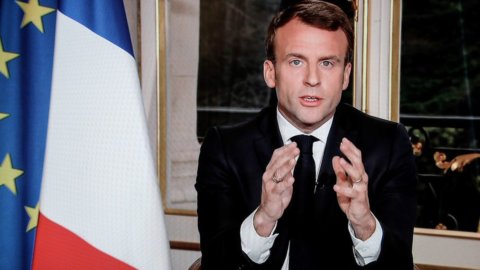The heated debate of recent days that arose around the release of Silvia Romano it has shown how many Italian citizens, including the ruling class, are unaware of the crucial importance of the African continent for the economy and foreign policy of our country, as well as its complexity, vastness and diversity.
Few know that Italy is the first European investor in Africa, with an FDI flow of 9,8 billion euros (also including non-permanent investments in the calculation). The data show that the interest of private individuals in trading and doing business beyond the Mediterranean is growing strongly: in 2019, Sace forecast a further annual increase in Italian exports to Africa of 5,5%, as reported by the Africa & Business magazine.
Furthermore, the 2014 cooperation reform gave private companies a greater role in project implementation: the CDP group has joined the cooperation agency (AICS), becoming a development bank on a par with those of other Western nations, while Sace, its subsidiary, assists large Italian companies and SMEs to enter these riskier and lesser-known markets .
It should be emphasized that the Italian business world is not the only sector to show increasing interest in the continent close to us. The Ministry of Foreign Affairs, which today celebrates the Africa day 2020 against the pandemic, has shown renewed attention to this crucial geographical area through various actions, such as the recent opening of new Embassies in Niger, Guinea Conakry and Burkina Faso (for a total of 28 offices in 55 countries of the continent) and through the organization of the Italy-Africa initiative. The numerous Italian NGOs have instead been present on the continent for decades, as well as the religious sector which sees, beyond the historical presence of the missionaries, the diplomatic activism of the Community of Sant'Egidio.
From 2013 onwards, Africa conquered more and more space also in the agenda of the executives (the considerable number of official visits to the continent is proof of this). However, politics has not managed to keep up on this front, continuing to see Africa almost exclusively under the aspect of immigration, neglecting any long-term strategy. The idea of an Italy acting as a bridge to Africa, pursued by politicians such as SalvatoreLineraro and Mario Pedini, belongs to the past.
If on one hand, Giuseppe Conte has visited several sub-Saharan countries during his two governments, trying to give continuity to the actions of his predecessors (which was supported above all by the dynamism of the ex-deputy minister Mario Giro, in office both during the Renzi and Gentiloni governments), on the other the item "Africa ” has not been placed at the top of the geopolitical priorities of its legislatures. The projection of Italian foreign policy in Africa has extended as far as the Libyan coast, highlighting the lack of a clear and decisive national strategy towards a continent increasingly at the center of international relations.
These hesitations, dictated by electoral needs and perennial internal instability, have meant that national politics has failed to guarantee coordination and foresight, remaining behind (together with the world of the media) with respect to the priorities and needs of the various national actors active in the African countries.
The Coronavirus crisis could be an opportunity to intensify relations between Italy and Africa. Our country could initiate a health diplomacy in favor of the many countries of the continent, offering medical materials and medical personnel, who have become experts in these last, difficult, months. This action could constitute the first step for a forward-looking, sustainable, reciprocal and coordinated foreign policy towards Africa, different from the unscrupulous and predatory actions of other competitors.
A new strategy towards the continent closest to us, evoked for years by many quarters, but never vigorously relaunched, would ensure greater safeguarding of our national interests beyond the Mediterranean and, at the same time, would offer African countries a reliable and sensitive partner to their requests. Italian politics and public opinion permitting.
The issues concerning Africa should also occupy more space in the Italian media, at least in the "foreign" pages, as a pillar of our international projection and of our cooperation (9 of the 22 priority countries designated by AICS are African). Raise public awareness it would help legitimize the importance of foreign policy choices directed towards this continent and improve coordination between the actors involved, as Giuseppe Mistretta, Director of Africa at the Farnesina, argues: “We need a great strategic plan, which requires a group of protagonists. The Italian system needs an all-encompassing perspective regarding everything that moves on Africa from the Italian side, at all levels”.
We therefore need a vision that looks to the coming decades, not limited to the next day and only to national borders, but open to the world, including Africa. The reason for the need for a new strategy towards our large southern neighbor was lucidly illustrated by Salvatore Forsero, Minister of Foreign Affairs in the 60s: “Africa is facing us, not only in a geographical sense: it is facing us as the reality of a new continent. Together with Africa, Europe will be able to make a bright journey. The European nations will be able to give you assistance on a plan of equal collaboration and without influence of a political nature".





